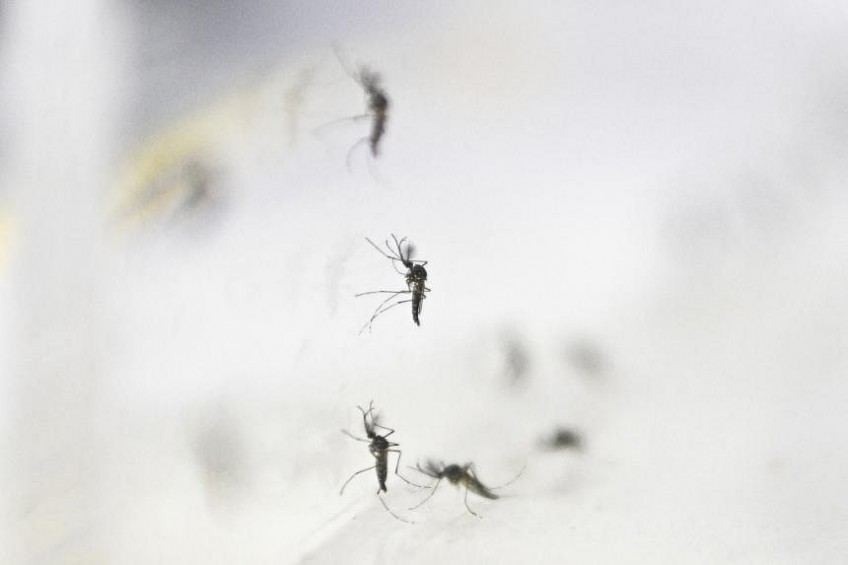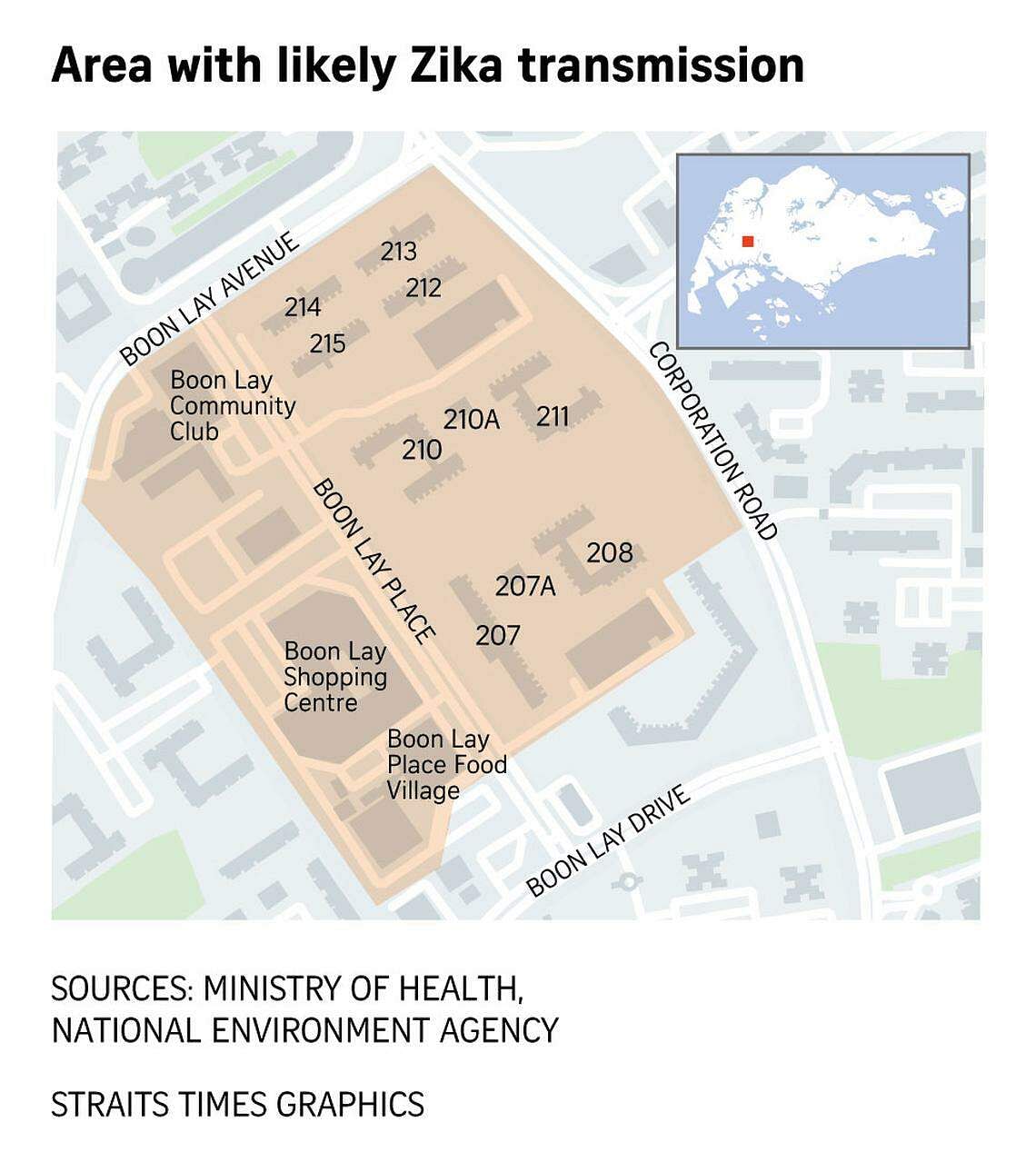Zika possibly being transmitted in Boon Lay Place; MOH and NEA urge residents to protect themselves


The authorities are on the lookout for Zika transmission in Boon Lay Place after mosquito and wastewater testing in the area found signs of the virus.
There was one Zika case reported in the area in December 2023, but there have been no cases detected since then, said the Ministry of Health (MOH) and National Environment Agency (NEA) in a joint statement on Feb 22.
The statement said: “While MOH and NEA have stepped up precautionary control measures, we cannot rule out the possibility of further cases, as most infected persons may display mild or no symptoms.”
It added that MOH has alerted doctors to test patients who display symptoms linked to Zika, especially those who live or work in the Boon Lay area.
Residents in and around the area, particularly pregnant women, have also been advised to protect themselves and monitor their health closely.
“They should seek medical attention if unwell with Zika virus infection symptoms, which include rashes, fever, joint pain, muscle pain, headache, conjunctivitis or red eye,” the statement said.
Patients should inform their doctors of the location of their residence and workplace, it added.
Like the dengue virus, the Zika virus is mainly transmitted by the bite of an infected Aedes mosquito. It can also be passed from a pregnant woman to her foetus or through sex.
The statement said that since November 2023, NEA has been conducting intensive mosquito-control operations in the Boon Lay area where dengue cases were also reported.
Efforts to curb the virus include indoor spraying of insecticides at housing estates in the area as well as inspection and killing of mosquito larvae at common areas to destroy any mosquito breeding.
“Residents are urged to allow NEA officers to inspect their premises, and spray insecticide to enable immediate removal of adult mosquitoes to stop the chain of Zika transmission,” the statement said.
Although rare, infections from the Zika virus can also cause microcephaly in unborn babies – a condition that results in children developing smaller than normal heads.
There are no vaccines or specific anti-viral drugs against Zika virus infection.

Residents, especially those residing in Zika and dengue cluster areas, can prevent mosquito bites by:
Men infected with the Zika virus are advised to practise safe sex or abstain from sex for at least three months after recovery to prevent sexual transmission of the virus, the statement said.
Meanwhile, if a woman tests positive for Zika, she should practise safe sex or abstain from sexual intercourse for at least two months after recovery, before trying to conceive, it added.
Three Zika cases have been detected in Singapore in 2024 up until Feb 8.
This article was first published in The Straits Times. Permission required for reproduction.